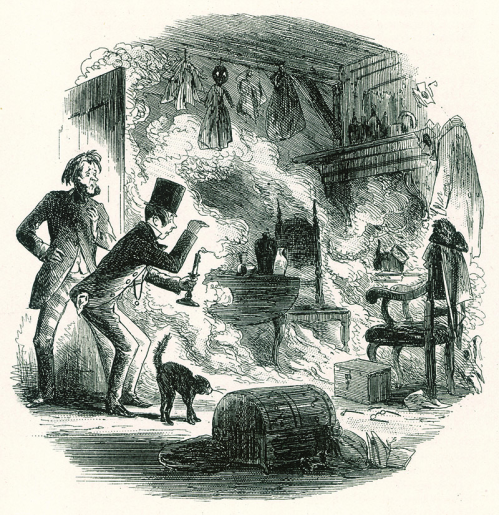
John gave me the excellent new biography of Dickens by Claire Tomalin, and I am enjoying it immensely. She is a modest biographer, who does not intrude herself except for the occasional sharp eyed observation, or amusing turn of phrase. She completely understands that we love Dickens—and read his biography—because of his work; hence, she is constantly referring to familiar characters and plots, and their relevance to his life. His first great love (who broke his heart by refusing his hand) set the pattern for his charming but silly heroines, who, as she says, are mostly blanks: “small, pretty, timid, fluttering, and often suffering at the hands of their official protectors”. The absolute icon of these ringletted beauties is Dora in David Copperfield, who, Ms. Tomalin tells us, “has more life, because Dickens cannot resist exaggerating her silliness so that she becomes a figures of high comedy before the pathos sets in.” And I was amused to discover that he had a chance to start afresh with the heart breaking lady many years later—she was now a widow, and wrote him a letter suggesting they might meet. He made the arrangements without feeling the need to notify his wife—but alas, the lady had grown florid and fat, and her charms were much diminished. How mortified he must have been! But out of this came Arthur Clennam’s similar (and very funny) meeting with Flora Finching in Little Dorrit. So many of his experiences—painful to the point of torment, some of them, like his time in the blacking factory—became part of his books. Ms. Tomalin shows us the experiences, and points out where they take their place in the books. She comes close to showing what an extraordinary man he must have been—extravagantly funny and wonderful in person, lighting up a room. His friends loved him, his public loved him. She quotes Robert Patten (another Dickens biographer), who points out that the success of Bleak House was not the result of “an expensive edition with elaborate binding and inflated price; it came from thousands upon thousands of individuals, putting down their shillings month after month in exchange for another thirty-two pages of tightly-packed letter press—nearly 20,000 words—and two illustrations.” Not to mention the thousands of people who came to his readings—which he so adored doing, but which completely drained him. What a flamboyant, wonderful, impossible man he must have been! Frantic, ferocious, amazing—we shall not see his like again. It is unbelievable to read about how much he did—not just the books, which are astonishing enough, but the newspapers, the journals, the home for lost girls, the fund raising for needy friends. He loved to party, drinking and eating with enormous enthusiasm—”I arrived home at one o’clock this morning dead drunk, & was put to bed by my loving missis.” And on another occasion: ” I am impatient to know how the Gin Punch succeeded with you. It is the most wonderful beverage in the world, and I think ought to be laid on at high pressure by the Board of Health”. He devised fabulous menus, and invented recipes, such as “a baked leg of mutton stuffed with veal and oysters.” Especially in our pinched and sanctimonious age, how delightful to hear of this unabashed delight in food and drink.
She does not beat around the bush in so far as his dreadful behavior with his wife—stunning to find the beloved author act so badly. To so baldly dismiss his wife of over 20 years, who had borne him 10 children, can hardly be forgiven. He was vicious to her, graceless, horrible. Of course, this kind of behavior is not new, and is almost the hallmark of powerful men: “she doesn’t UNDERSTAND me, but this younger more beautiful woman does.”
Still, there it is. Dickens. Whatever he did to Catherine, he wrote some of the most wonderful books in the world. For this we honor him, and Claire Tomalin has written an excellent biography to commemorate him.
Read Full Post »


